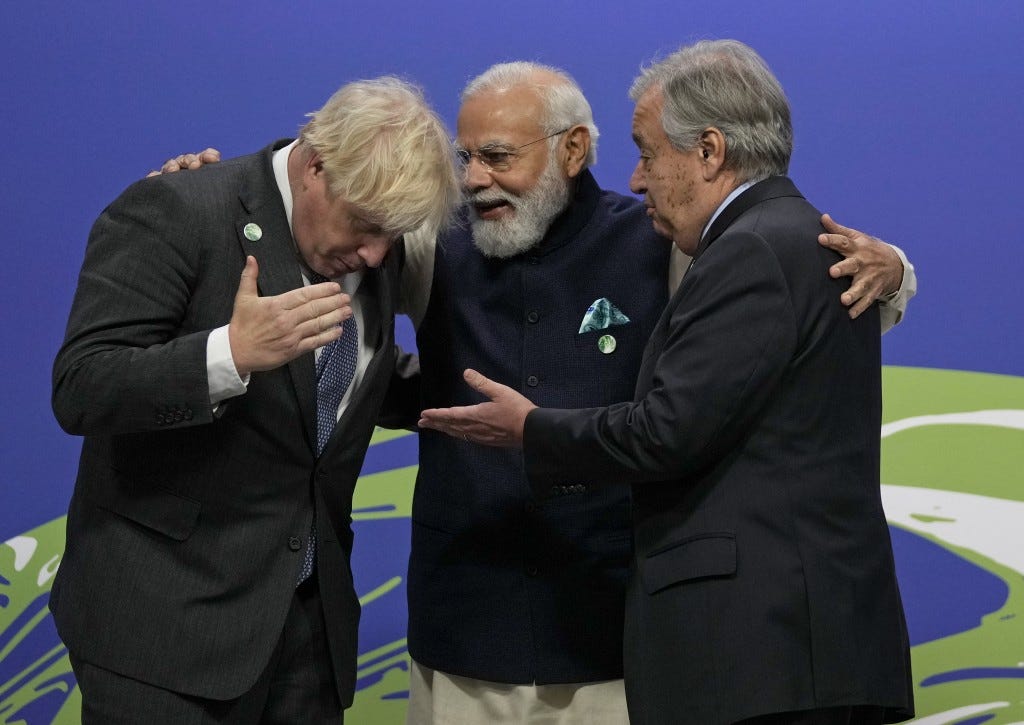Modi praised for climate reforms then upset Glasgow Pact
Suggestions that China conned India into negative stance
By: John Elliott
With hindsight, no one should have been surprised when India unexpectedly insisted at the end of the COP26 negotiations last weekend that the Glasgow Climate Pact should only call for coal power to be “phased down,” not “phased out,” thus up…
Keep reading with a 7-day free trial
Subscribe to Asia Sentinel to keep reading this post and get 7 days of free access to the full post archives.

